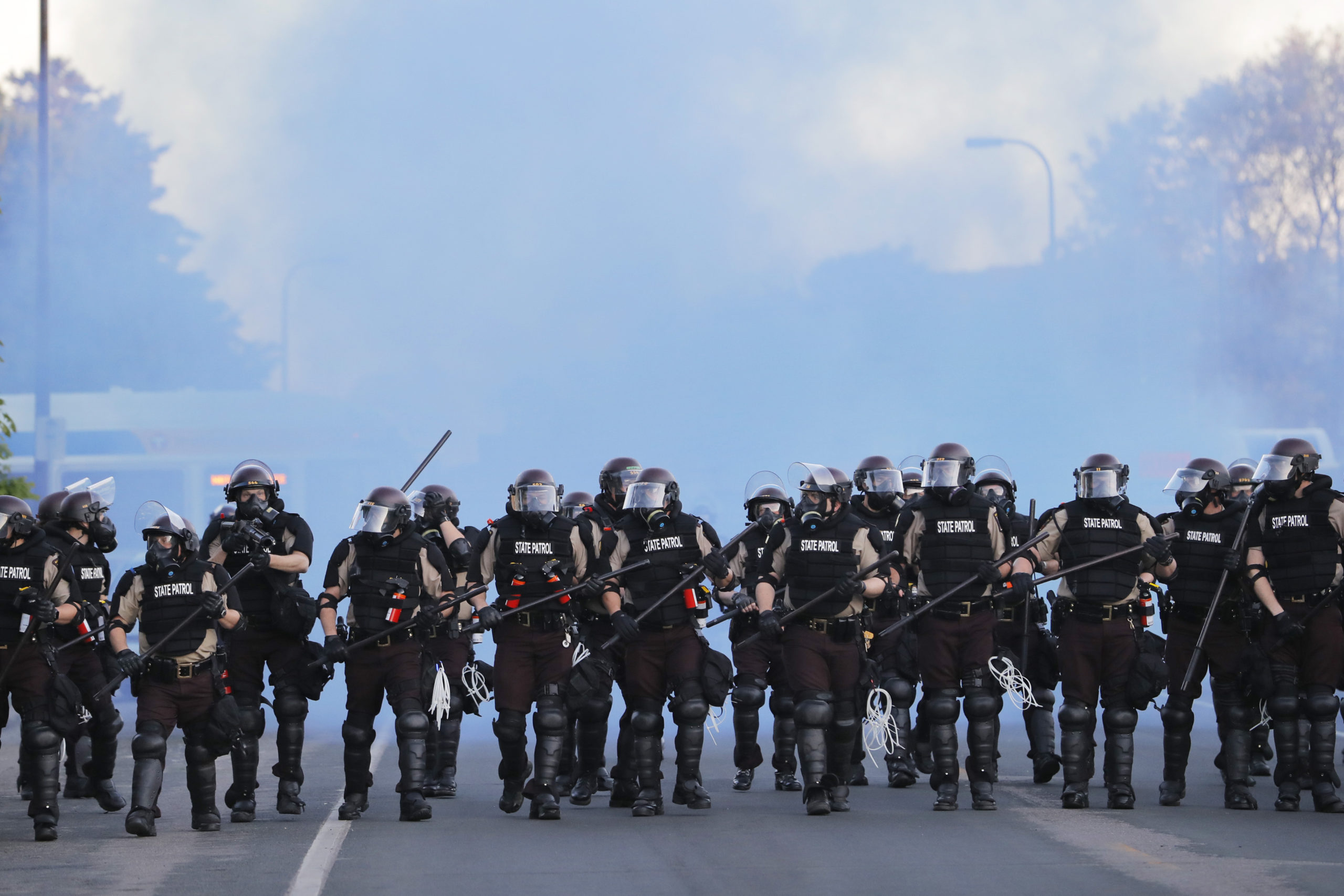Reporters Committee letter to Minnesota officials demands end to police attacks against journalists

The Reporters Committee for Freedom of the Press sent a letter on Tuesday to officials in Minnesota demanding that law enforcement officers immediately stop attacks against credentialed, clearly identifiable journalists covering protests that erupted after a white Minneapolis police officer killed George Floyd, a Black man, on May 25.
The letter, co-signed by 115 media and press freedom organizations, stresses that law enforcement does not have legal immunity when officers violate clearly established rights under the First Amendment. Though directed at Minnesota officials, the legal rules outlined in the letter are applicable to jurisdictions around the country.
“The right of the press to document police activity is foundational to our democracy and has long been recognized and protected by the courts,” the Reporters Committee’s letter states.
Over the past several days, there have been many reports of journalists being attacked while covering nationwide demonstrations, during which protesters are demanding justice, an end to violence against Black Americans and greater police accountability. Police have arrested, detained, and threatened journalists, and have physically assaulted them with rubber bullets, pepper balls and spray, tear gas, batons, and fists.
In Minneapolis alone, the Reporters Committee has identified at least 10 cases where journalists who appear to have been clearly identified as such, and who were standing at some distance from protesters, were arrested or shot by officers with rubber bullets and tear gas. Many local, national, and international journalists were among those arrested or assaulted. The U.S. Press Freedom Tracker has confirmed about 15 similar cases across the country, and the Reporters Committee and the Tracker are investigating many dozens more.
The letter acknowledges that Minneapolis has improved in terms of interactions between law enforcement and the press over the last several days, and notes that Minnesota Gov. Tim Walz apologized for the arrest of a CNN crew on camera, saying, “We have got to ensure that there is a safe spot for journalism to tell this story.” But the letter also makes clear that as a matter of settled law, “when an officer knows a journalist is a journalist, just one arrest or assault is a profound and clear violation of the First Amendment.”
Under federal civil rights laws, government officials, including individual police officers, can be sued if they violate “clearly established” rights under the First Amendment. Numerous courts have held that journalists have a clearly established First Amendment right to document police activity in public, which flows from the general right of journalists to gather and report news about government affairs.
Although these cases, in Minnesota and around the country, involve the arrest or physical assault of working journalists, the law would be the same. As the letter notes, “Though physical restraints on newsgathering, such as those which we have seen in Minneapolis in recent days, are thankfully rare and therefore seldom litigated, there is little question that a court would find a ‘clearly established’ First Amendment right of journalists to be free from the baton or rubber bullet.”
The letter includes a number of protocols that must be put in place immediately to protect reporters and ensure the public is informed, chief among them that commanders instruct officers that they cannot interfere with identifiable journalists covering the protests, and that the officers themselves would receive no legal immunity for doing so. The letter also calls for swift discipline for officers who do arrest or assault journalists.
Finally, the letter raises a separate but related issue about curfew enforcement. As jurisdictions around the country have imposed curfews in response to the protests, most have exempted the news media, effectively as an “essential service.” All jurisdictions should do so. The Reporters Committee is, however, investigating reports that journalists have been arrested for curfew violations, even in cities with a media exemption.
The legal analysis in such a case would be the same: The media has the right under the First Amendment to document police activity, and violators of that right can be sued.
But the implications of curfew-related arrests of journalists are, as a matter of policy, even more profound. That is — a curfew is one of the most intrusive constraints on individual liberty and how a curfew is enforced is intensely newsworthy and in the public interest. It is imperative that the media be allowed to report on how these curfews are being enforced, which both serves to document any misuse of police power and acts as a deterrent on abuse.
Read the full Reporters Committee letter.
The Reporters Committee regularly files friend-of-the-court briefs and its attorneys represent journalists and news organizations pro bono in court cases that involve First Amendment freedoms, the newsgathering rights of journalists and access to public information. Stay up-to-date on our work by signing up for our monthly newsletter and following us on Twitter or Instagram.
AP Photo by Julio Cortez